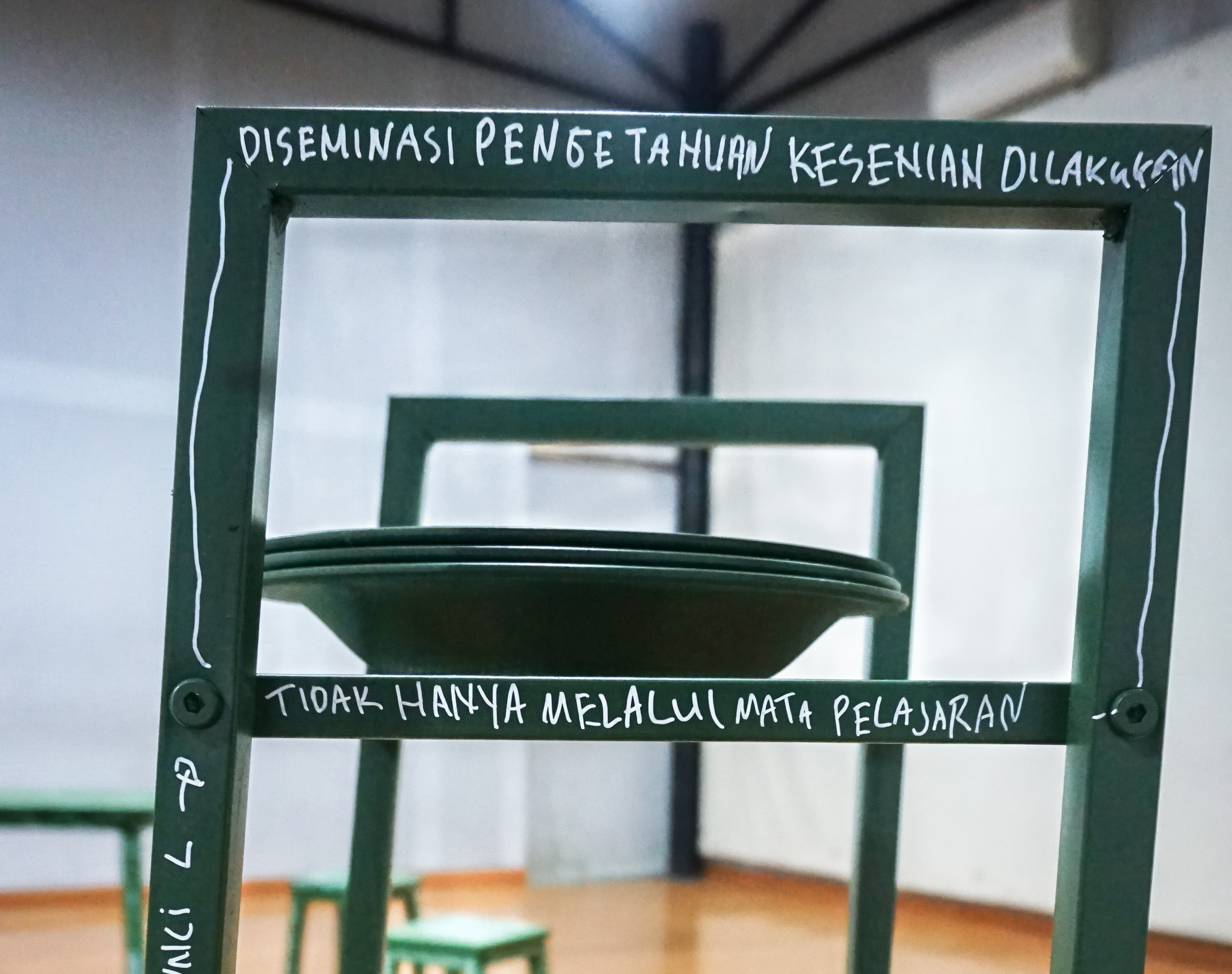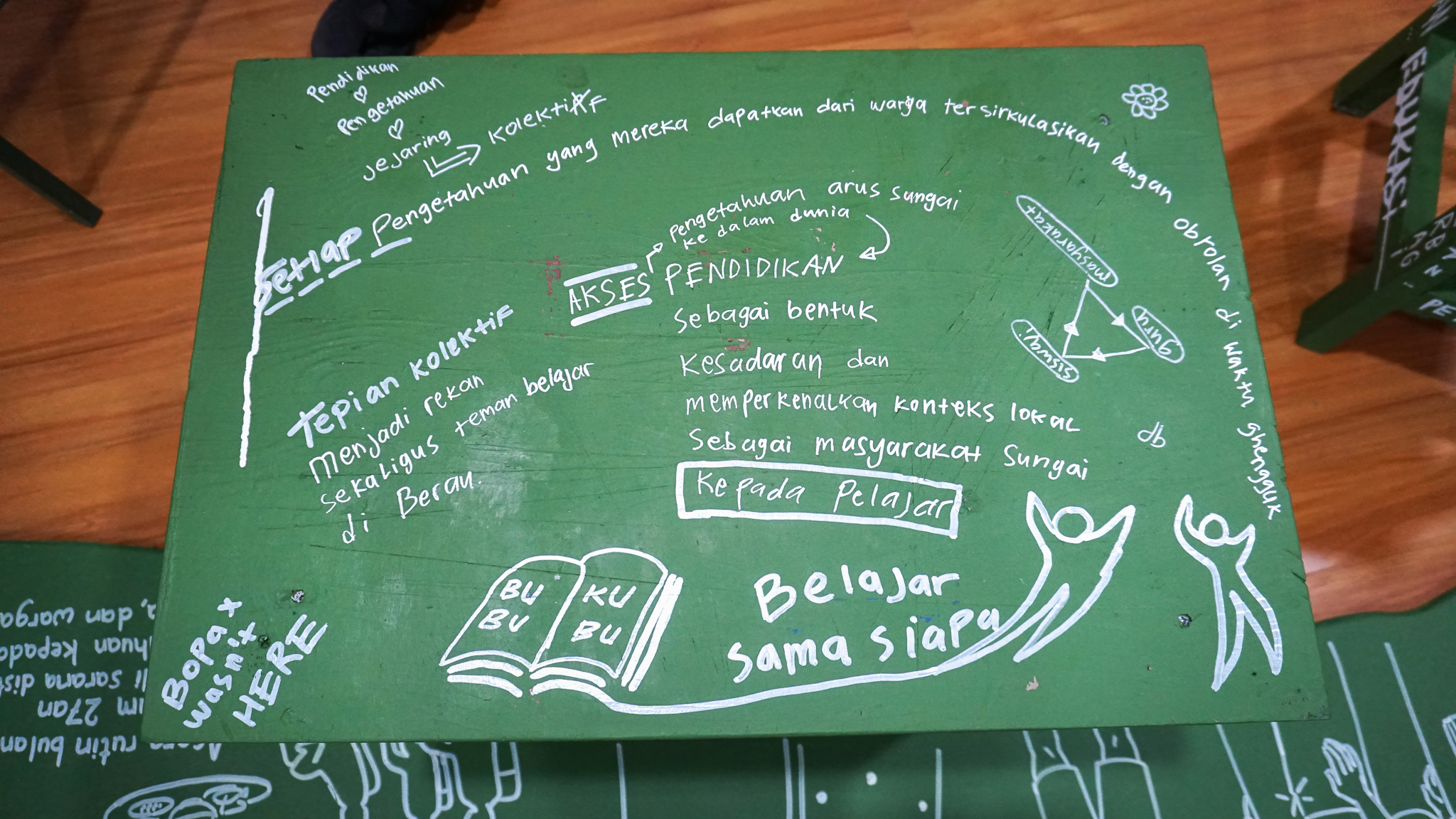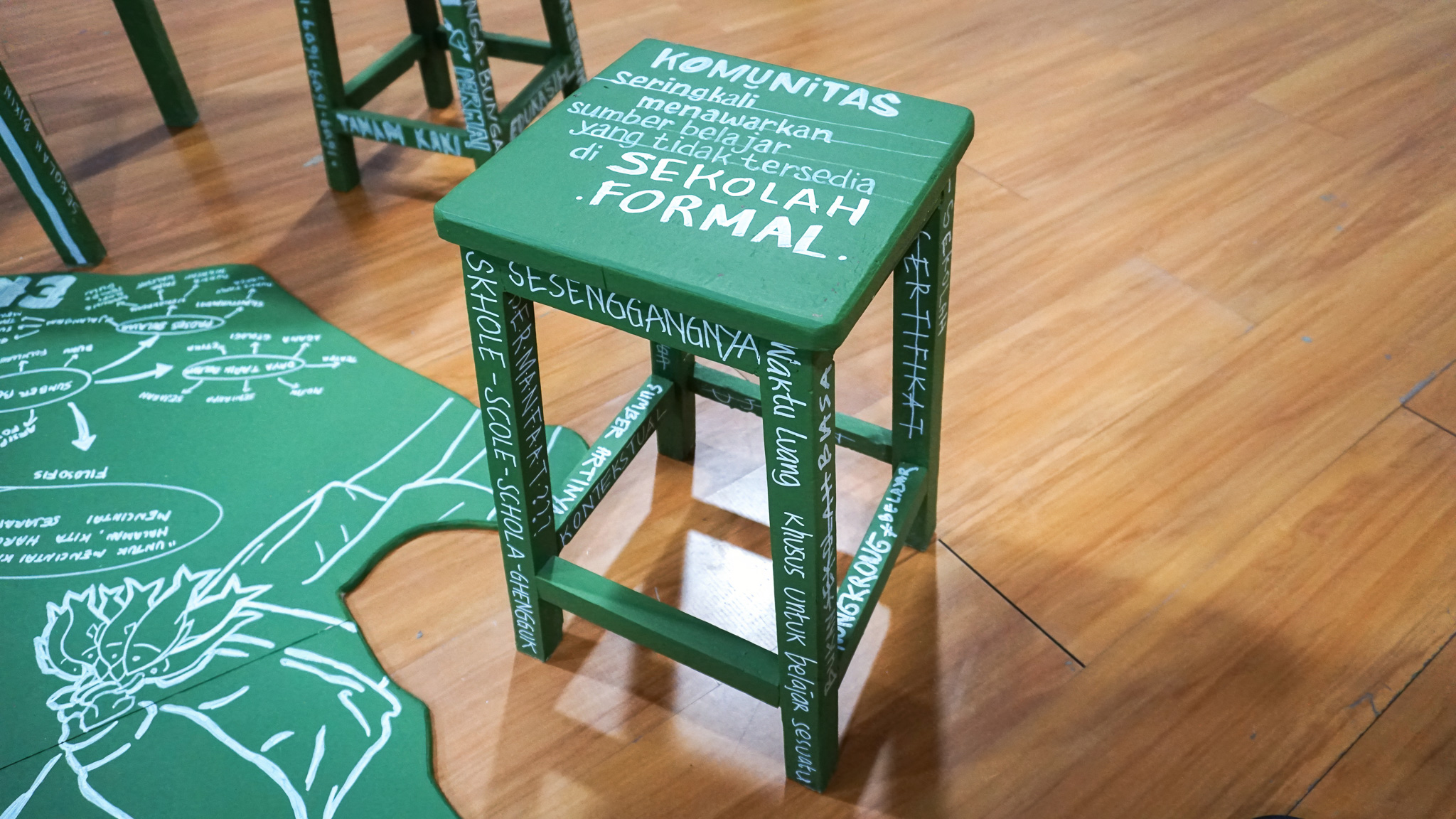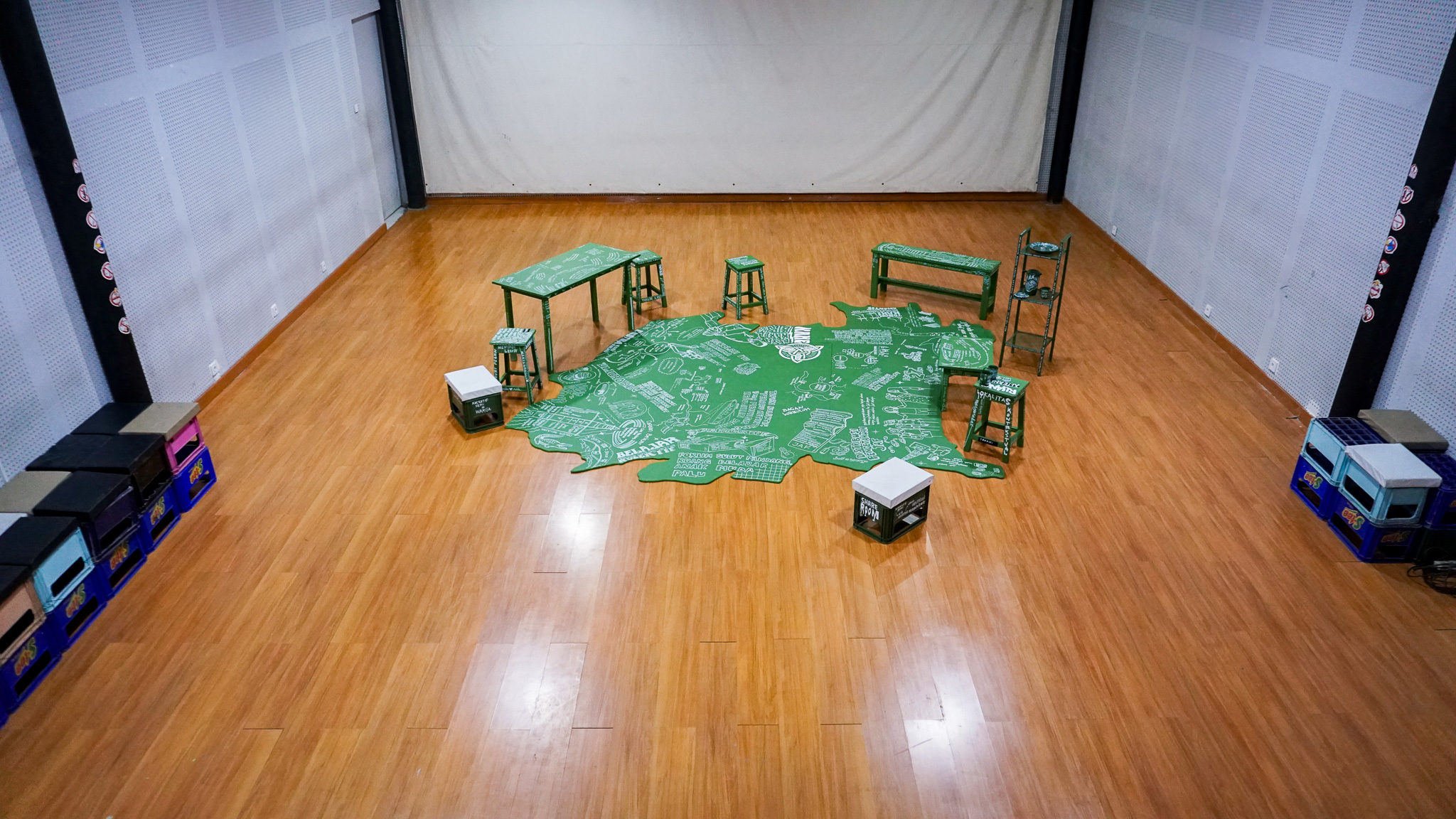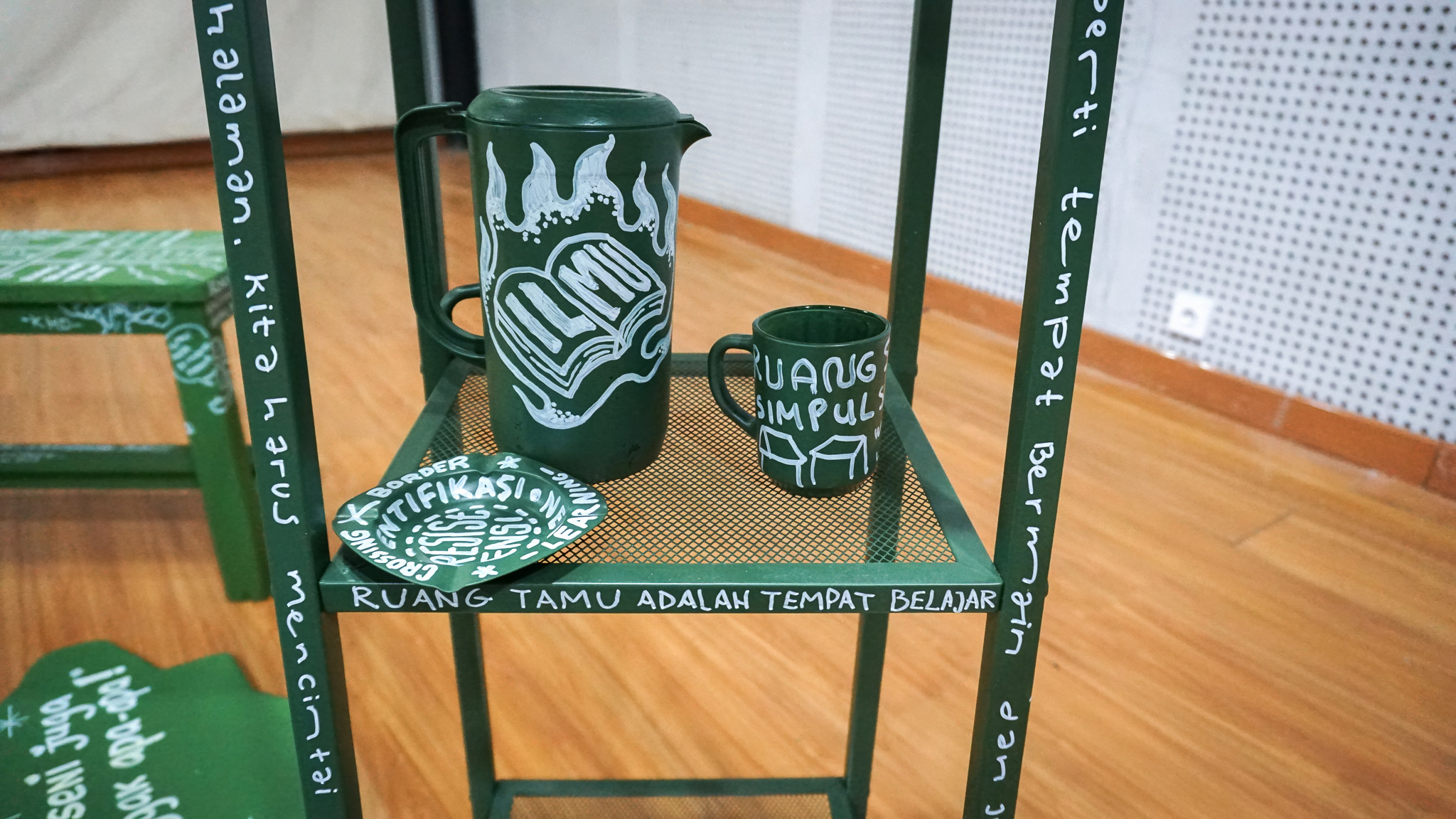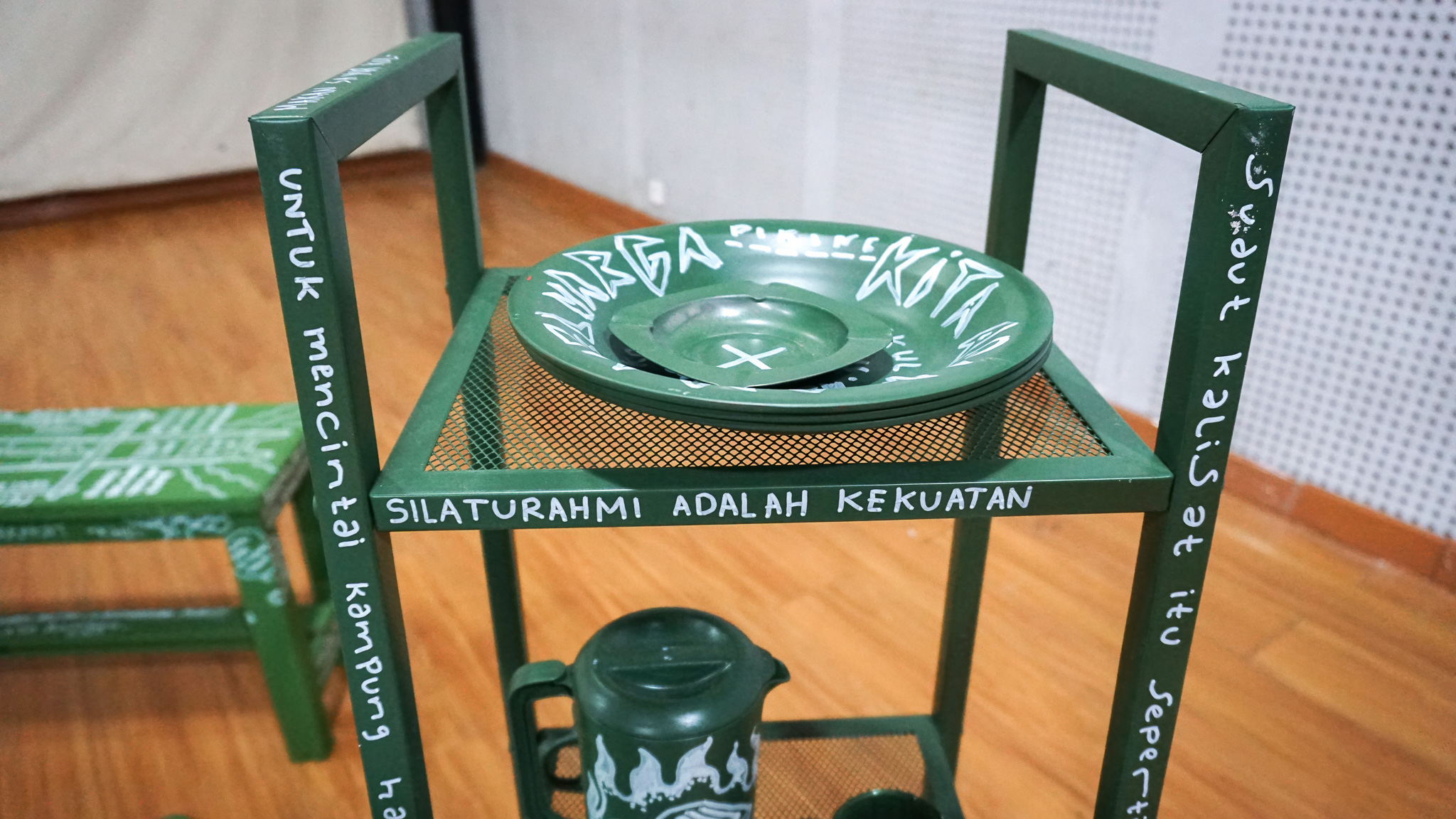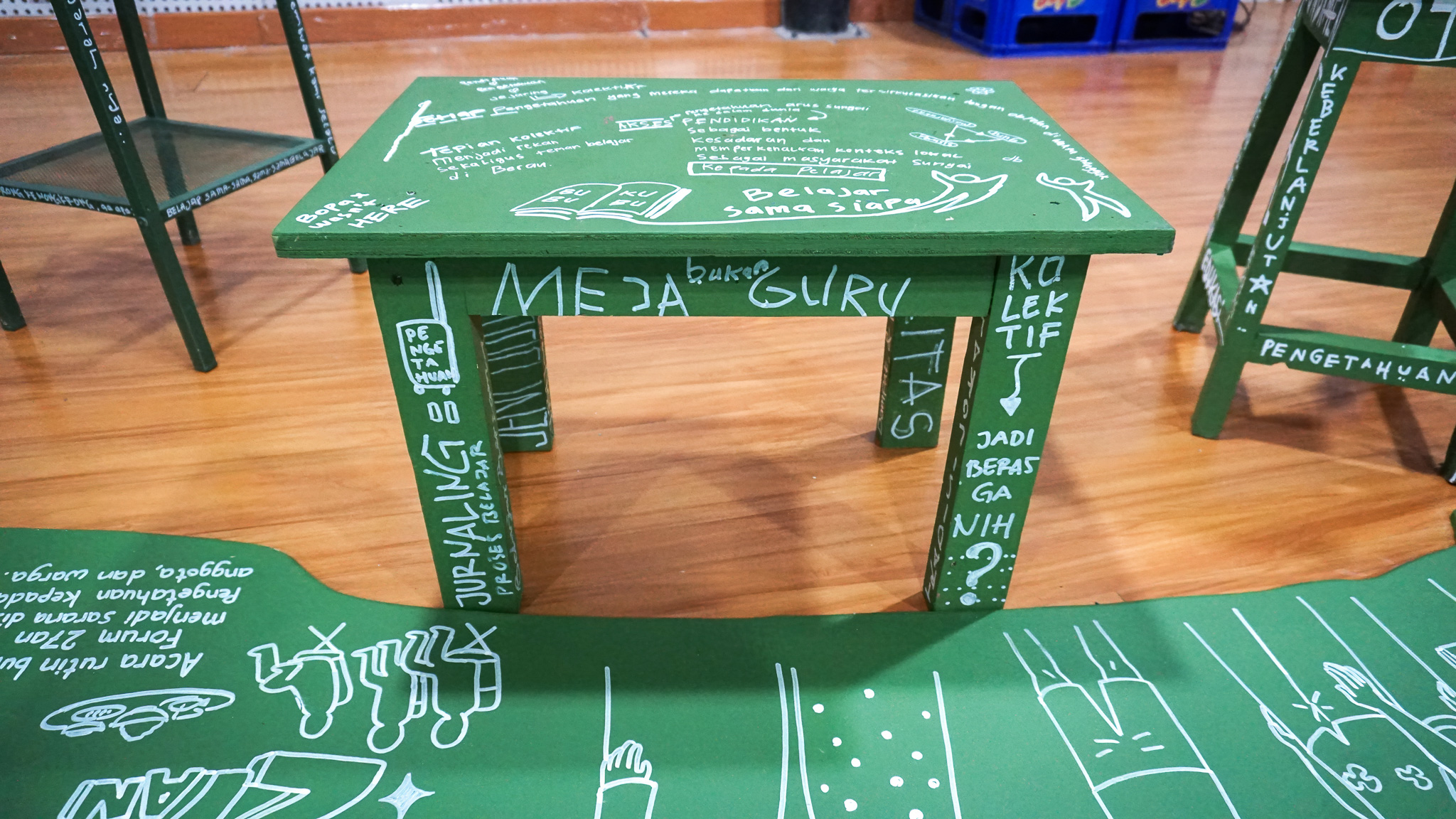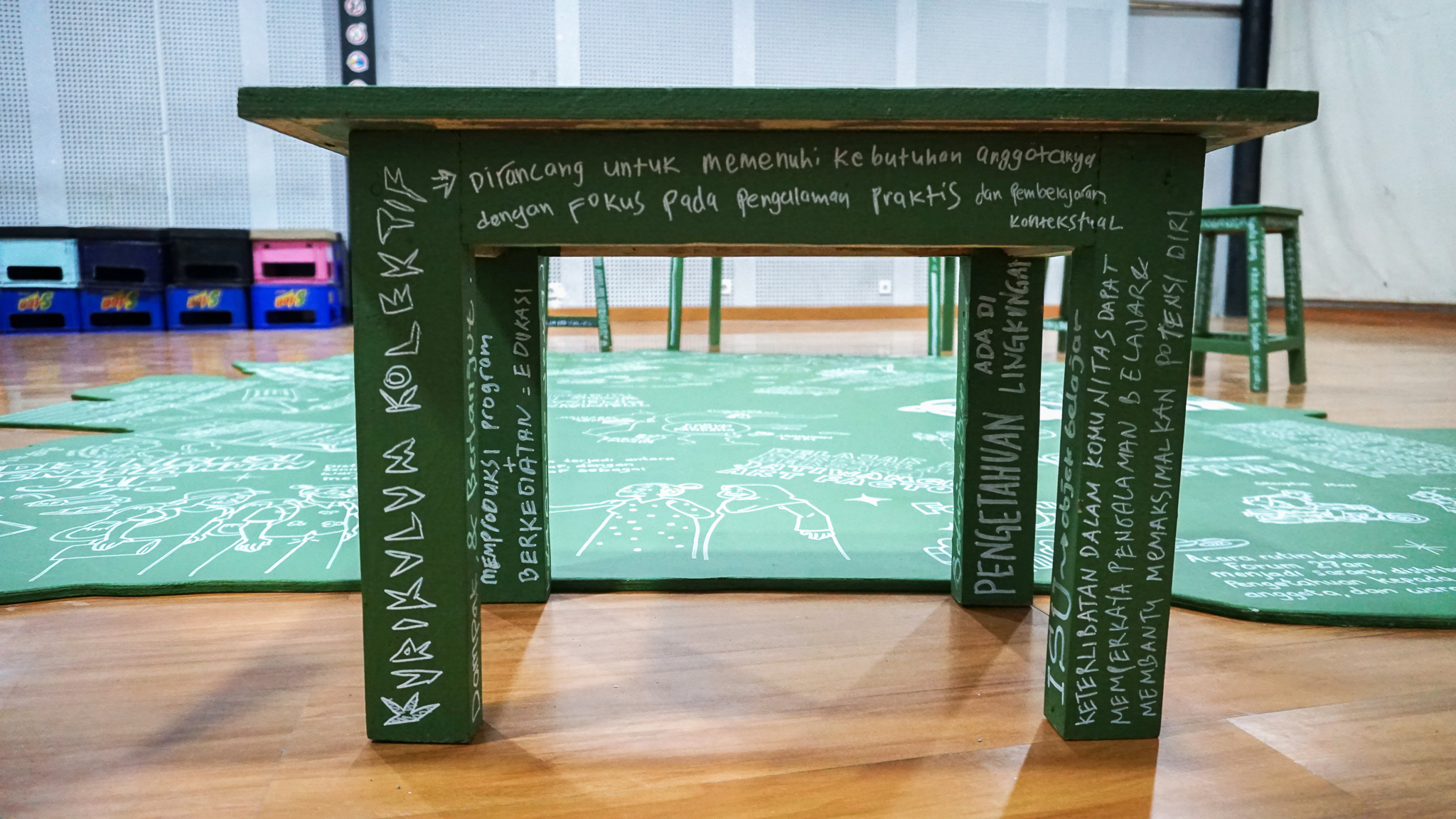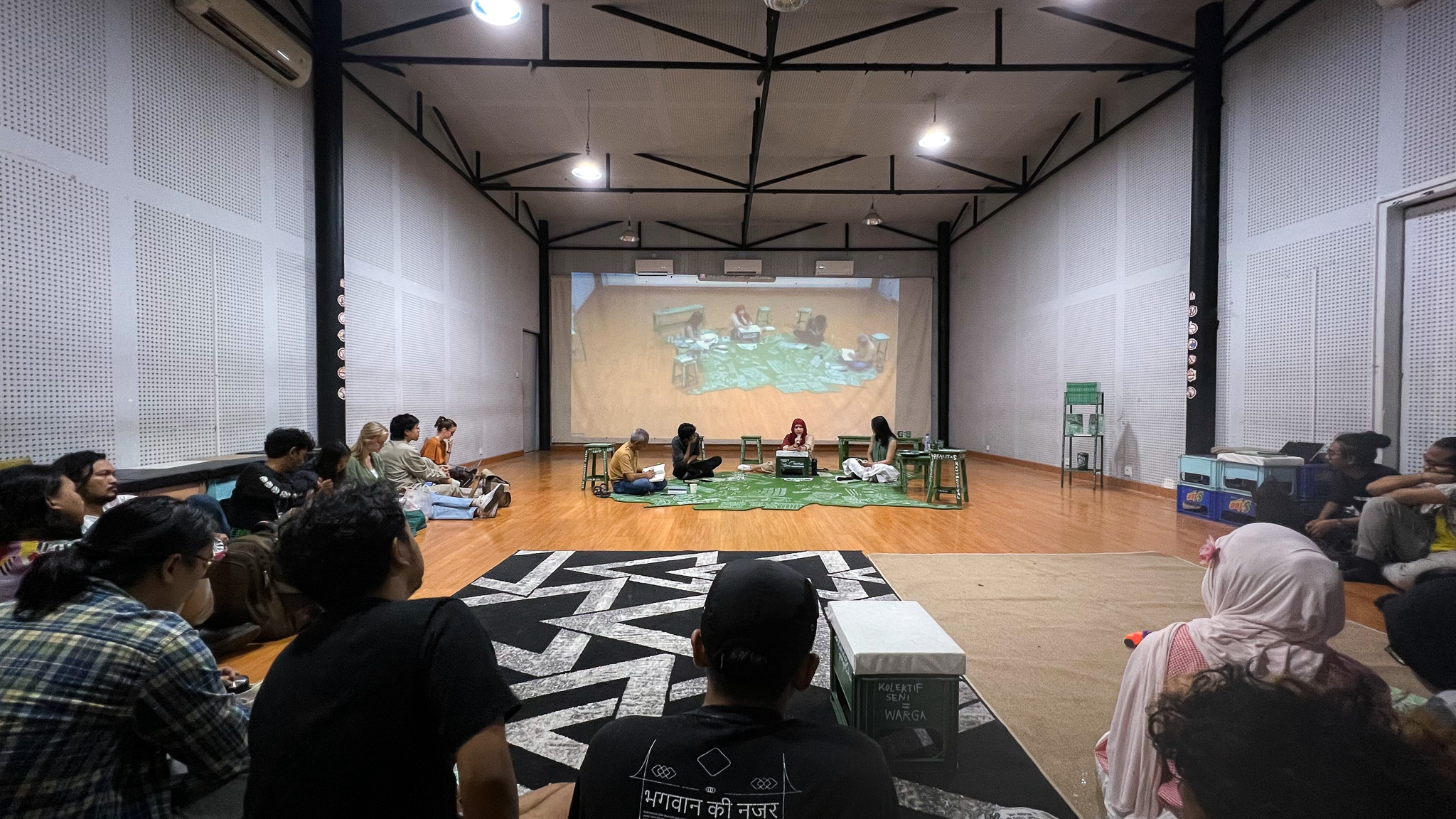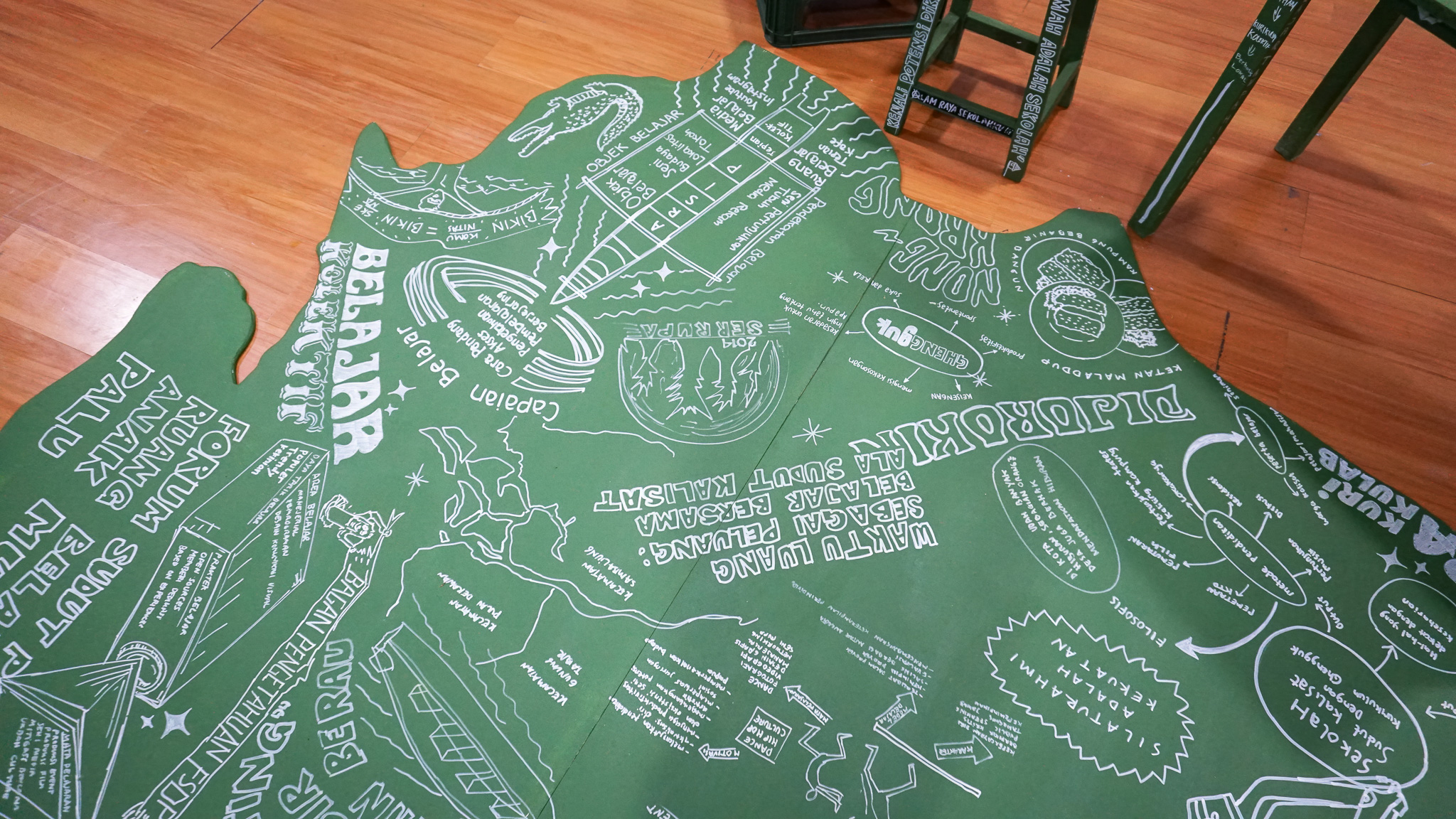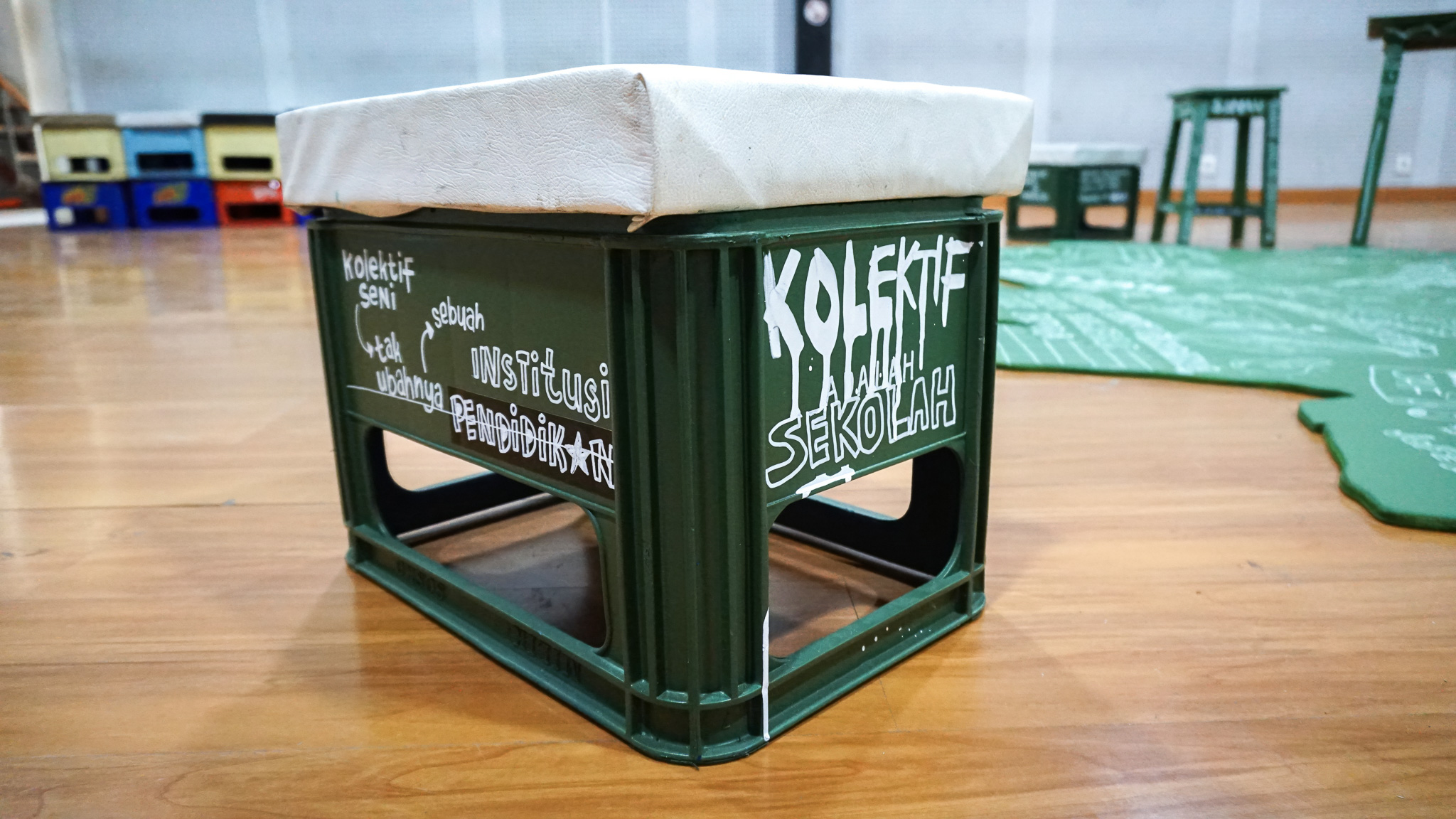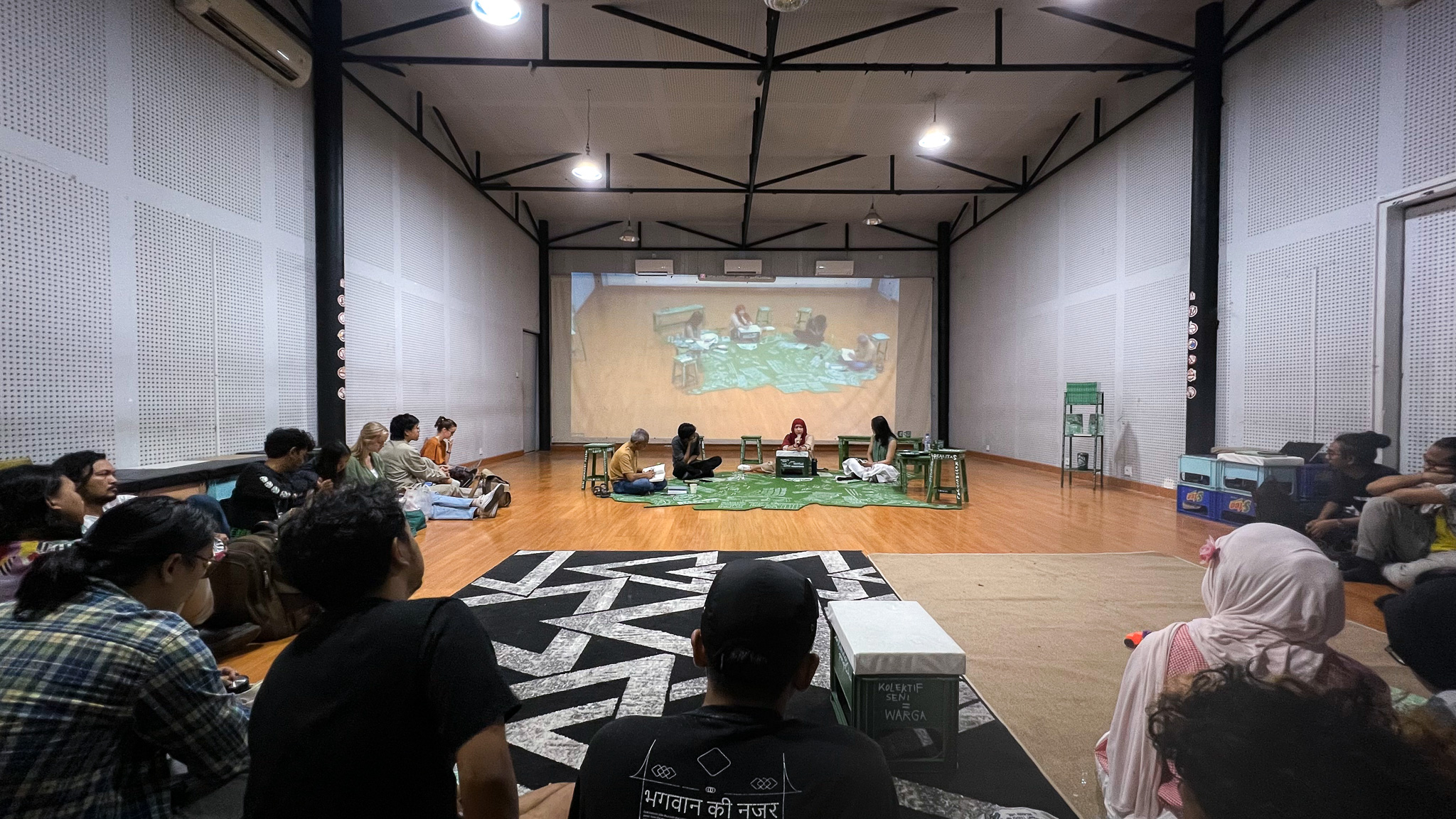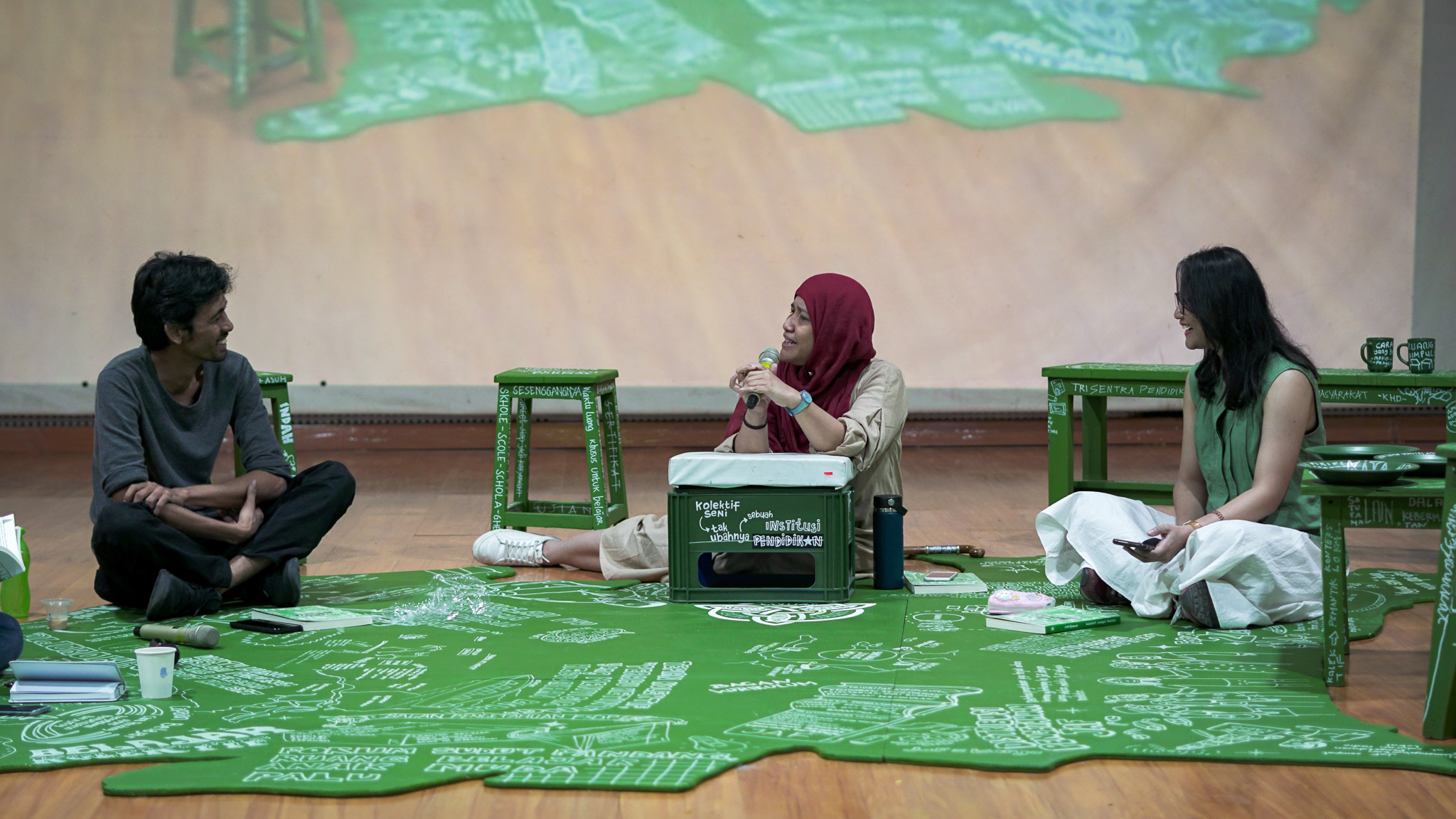Author Archives: admin
Ekstrakurikulab : Kolektif sebagai Sekolah
Kurikukul Berbasis Tontonan
Kurikulum Berbasis Tontonan
This projects presented at 100 Tahun Taman Siswa, Museum Kebangkitan Nasional
This Art Project invites community members to use online channels as a source of independent learning. This art project tries to collect various information on the internet (based on spectacle) and is formulated into a simple curriculum that is personalized according to his interests and talents, as Ki Hajar Dewantara views "LEARNING BASED ON THE INTEREST AND WILL OF STUDENTS". How every human being is able to develop a curriculum for his own needs, because until today we are learners.
Rumah Guru
Rumah Guru
Rumah Guru (Teacher's house) is a portal that involves creative teachers who have a method or medium of instruction with an interesting approach to be publicly disseminated widely, making it a reference for other teachers.
Kurikulab Masuk Desa
Kurikulab Masuk Desa
Comic Created by Amy Simonyetbali
This project plans and implements a study model that values and highlights locality for students of particular region. This project is designed performance art as a learning approach, particularly with focus on socio drama. Performance art is considered to be an active, collaborative and inclusive activity for different groups of people. At the Ekstrakurikulab Festival, we will show the design of curriculum and learning equipment for subject Muatan Lokal Tanah. The learning equipment includes a syllabus and comic-shaped modules prepared by Serrum’s collaboration work with teachers and the principal of SDN Jatisura 01. Presentation of this project will also show all the data and artifacts of Serrum’s research in order to explore local treasure in Jatiwangi. Such as the transcribe of interview with local residents, field notes, reference books used, photos of activities,and documentation video of discussion between Serrum and SDN Jatisura 01 in order to construct subject Muatan Lokal Tanah.
Sejarah Idaman
Kurikulab : Moving Class
Kurikulab : Moving Class
Kurikulab : Moving Class
Saturday, October 30, 2021 — Sunday, February 27, 2022 10:00 — 19:00
Photos courtesy : YCAM
Sekolah Idaman
Pasar Ilmu
Pasar Ilmu
Rupamatika
Rupamatika
This work presented at Serrum Gallery 2014 & KurikuLab 2014
Rupamatika is a project that combines the Mathematics curriculum with the application of fine arts which results in a more "asoy" method in learning mathematics. It was first initiated by MG Pringgotono and Oktiza together with ESOA (Erudio School of Art) and Serrum schools. This method has been applied at ESOA since 2013.

